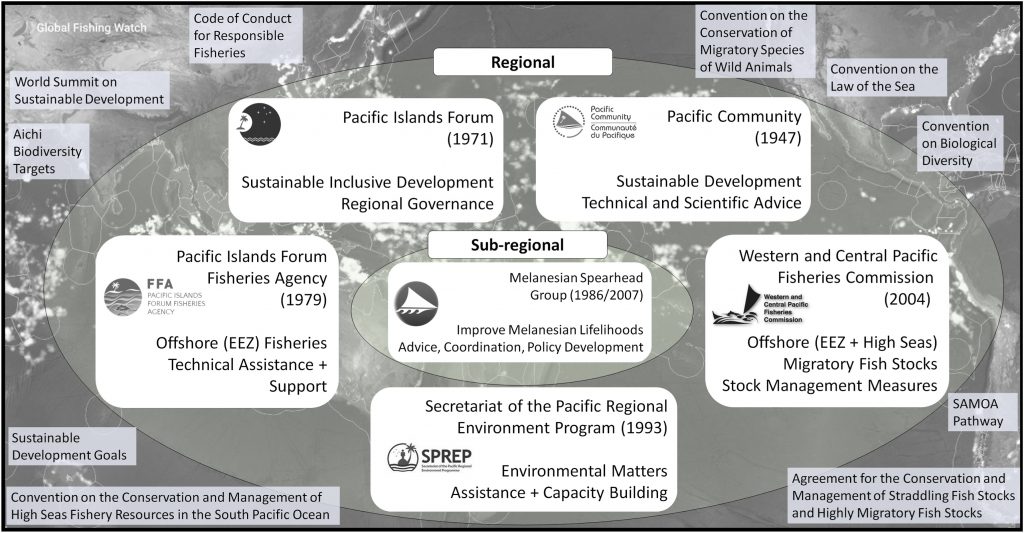While categorized as Small Island Developing States, South Pacific Island nations are the custodians of major ocean areas containing marine resources of high commercial and environmental significance. Yet, these resources are threatened by climate change, overfishing, Illegal, Unreported and Unregulated (IUU) fishing, as well as habitat destruction. The study, carried out in the early stage of the interdisciplinary research project SOCPacific, aims to: a) identify the main policies on which fisheries management is currently based in the South Pacific, particularly in Fiji, New Caledonia and Vanuatu; b) investigate the evolution over time of key issues covered in these policies and related to coastal and/or offshore fisheries sectors; c) trace disconnections on the matter between legally binding instruments and non-binding strategies. A list of more than 200 documents relevant to regional fisheries management was gathered and separated into legally binding instruments and non-binding strategies. Legal instruments focused more on offshore issues (tuna fisheries and IUU fishing) and increasingly covered IUU fishing issues, confirming that tuna fisheries have an established hard policy arena. In strategies pertaining to coastal fisheries, community involvement appears as a key topic and a clear overall trend towards increasingly addressing climate change was spotlighted. Sustainability, community involvement, climate change, and food security issues are more covered in strategies than in legal instruments. Topics mostly addressed in relation to coastal areas are not substantially covered in legal instruments, suggesting that establishing binding measures might not be deemed as beneficial as strategies in coastal fields.
Figure: Overview of the South Pacific governance framework, highlighting some of the main fisheries management-related organizations surrounded by key stones of the international agenda.
